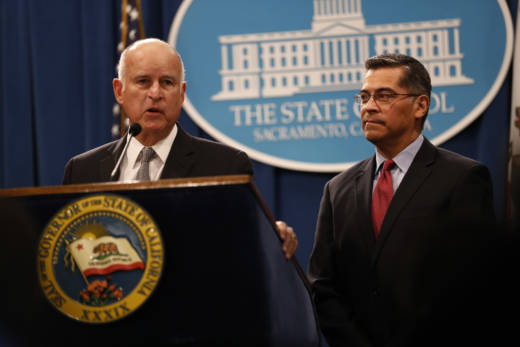A fight is brewing in Sacramento over how to fix perceived shortcomings in a series of criminal justice reforms that were supported by Gov. Jerry Brown and approved by California voters in recent years.
On one side is a group that believes California has moved too far away from the tough-on-crime laws that proliferated here in the 1990s. They are pushing a ballot measure that would roll back many of the parole changes championed by Brown, expand DNA collection to include people convicted of misdemeanors, and increase penalties for people convicted of theft.
On the other side are the governor and criminal justice reform advocates, who say that ballot measure goes too far and are supporting a bill that aims to close what critics see as a loophole in one of the recent criminal justice ballot measures, Proposition 47.
Today, lawmakers in a public safety committee will consider that proposed law, Assembly Bill 1065. It would create a new crime for organized retail theft, so people who are shoplifting as part of a theft ring and operating across different counties can be charged with a felony. It’s a change that retailers, who are sponsoring the measure, have wanted for years.
“As an industry we’ve seen increases in shoplifting and violence in our stores — it’s a nationwide trend,” said Bill Dombrowski, president of the California Retailers Association. “We have wanted an organized retail crime statute in California for more than 10 years. So we’re viewing this as an opportunity.”

